As much as everyone loves the idea of having a furry friend in our lives, owning a puppy is a big responsibility that requires a lot of time, effort, and commitment. Before bringing a puppy into your home, it’s essential to ask yourself some questions to determine if you’re ready for the challenge. Here are 13 questions to help you make this critical decision.
1. Are you prepared to devote time to training and socializing your puppy?
Puppies need a lot of time and attention, especially in the first few months, to learn basic commands and good manners and to get comfortable with new people and environments. Devoting time to training and socializing your puppy is a big responsibility of being a dog owner. Proper training and socialization can help prevent behavioral issues and ensure that your puppy grows into a well-behaved and confident adult dog.
Training should start from the moment you bring your puppy home. Basic pet commands such as “sit,” “stay,” “come,” and “heel” should be taught early on. Consistency is key in training, so setting aside time each day to work with your puppy is essential. Positive reinforcement training techniques, such as treats and praise, are often the most effective way to train a puppy.
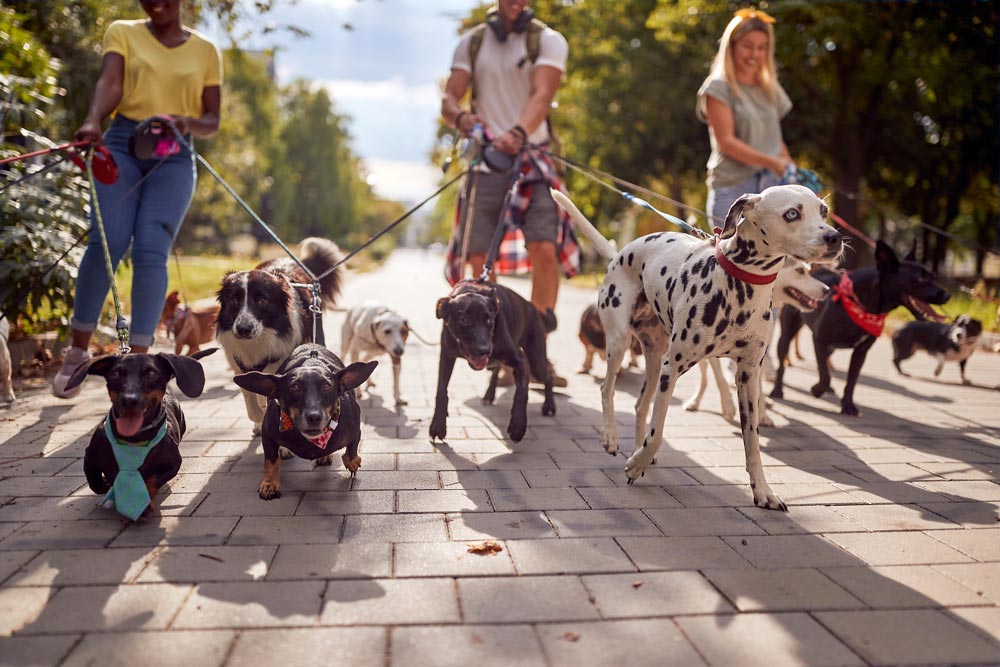
Socialization is also a critical aspect of puppyhood. Introducing your young puppy to new people, places, and other animals will help them become well-adjusted and confident in various situations. Taking your puppy to obedience classes or dog parks, or exposing them to different environments, such as busy streets or crowded stores, can be a great way to socialize them.
Remember that puppies have a critical socialization period between 3 and 14 weeks of age, during which time they are most receptive to new experiences and learning. After this period, it becomes more difficult to change their behavior and reactions to new stimuli.
It’s also important to note that training and socialization are ongoing processes that continue throughout a dog’s life. Regular training sessions and exposure to new experiences can help maintain good behavior and prevent problem behaviors from developing.
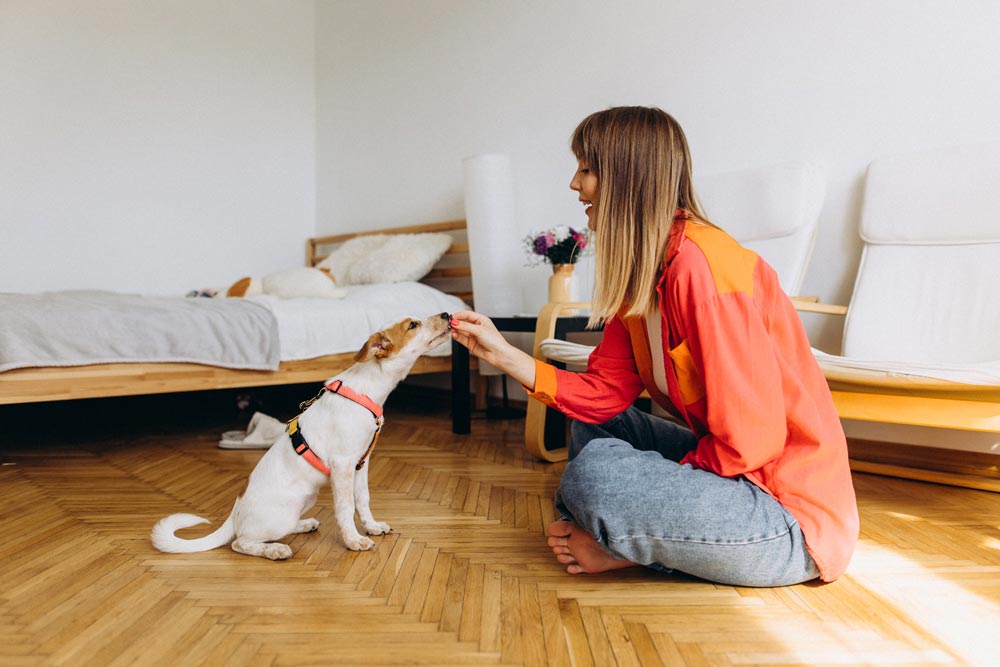
2. Are you ready to accommodate a puppy’s needs?
This includes providing food, water, and plenty of opportunities for exercise and play. Puppies also require regular trips to the vet and grooming. Accommodating a puppy’s needs is an essential aspect of responsible dog ownership. Before bringing a puppy into your home, it’s essential to ensure you have the resources and commitment to meet their needs.
Here are some of the basic needs that you should to be prepared to accommodate for your puppy:
- Food and water: Puppies need a balanced diet to support their growth and development. You’ll need to provide them with high-quality dog food and fresh water at all times. This includes regular daily washing of their feeding bowls.
- Exercise: Puppies have a lot of energy and need plenty of physical activity to stay healthy and happy. This can include walks, playtime, and trips to the dog park. But keep in mind not to overplay with your young puppy when first bringing them home. A good 15 minutes of playtime initially is suggested. Making sure to give breaks in between play and training.
- Potty breaks: Puppies need to go potty frequently, especially when they are young, so you’ll need to be prepared to take them out often.
- Sleep: Puppies need a lot of sleep to support their growth and development. You’ll need to provide them with a comfortable and secure place to sleep. This is where a suitable size crate comes in handy. It should be large enough for the puppy to stand and turn around in.
- Grooming: Puppies need regular grooming to keep their coat clean and healthy. This can include brushing, bathing, and nail trims. Some breeds may require daily bruising of their coat. Also it is best to get your puppy used to brushing their teeth daily right away.
- Veterinary care: Puppies need regular visits to the vet for check-ups, vaccinations, and other preventive care.
- Training and socialization: As mentioned in the previous answer, proper training and socialization are essential for a well-behaved and confident dog.
Accommodating a puppy’s needs is a big responsibility that requires time, effort, and resources. Before bringing a puppy into your home, make sure you have the necessary commitment and resources to meet their needs and provide them with a happy and healthy life.
3. Can you afford the cost of owning a puppy?
The cost of owning a puppy goes beyond just the purchase price. You’ll need to factor in food, veterinary care, toys, and grooming expenses.
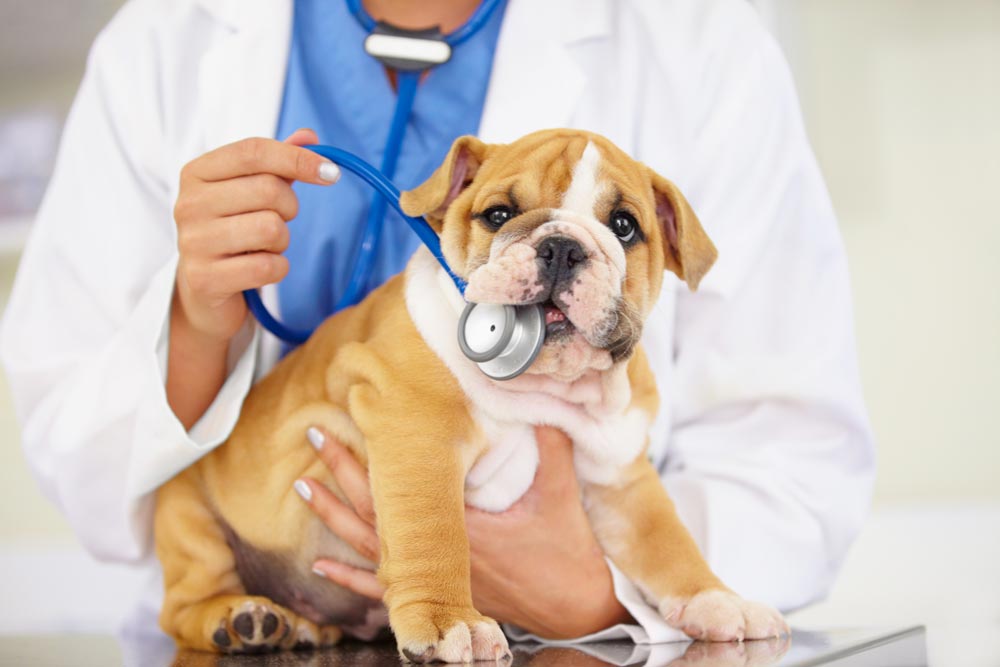
- Food and supplies: Puppies need a balanced diet and various supplies, such as a collar, leash, bed, toys, and grooming supplies.
- Veterinary care: Taking your puppy to regular visits to the vet for check-ups, vaccinations, and other preventive care can add up quickly. In addition, unexpected medical expenses, such as emergency treatments or surgeries, can be costly.
- Training and socialization: Investing in proper training and socialization can help prevent behavioral issues and ensure that your puppy grows into a well-behaved adult dog. This may involve hiring a professional trainer or enrolling in obedience classes.
- Boarding or pet-sitting: If you need to travel or go on vacation, you’ll need to arrange for boarding or pet-sitting services for your puppy.
- Licenses and permits: Some cities and municipalities require dog owners to purchase licenses and permits for their pets.
- Insurance: Obtaining pet insurance can help cover the cost of veterinary care, but it is an optional expense.
It’s essential to keep in mind that these costs can vary depending on the breed, size, and age of your puppy, as well as your location. Before bringing a puppy into your home, it’s essential to carefully consider the ongoing costs associated with ownership and make sure that you have the financial resources to meet their needs.
4. Are you ready for the messes and accidents that come with having a puppy?
Puppies are notorious for having accidents in the house and chewing on things they shouldn’t. Are you prepared to clean up after your new furry friend? Puppies are adorable, but they can also be messy and accident-prone. Before bringing a puppy into your home, it’s essential to be prepared for the messes and accidents that come with having a young dog. Also to puppy proof your home prior to their arrival.
Here are some of the messes and accidents that you may encounter when owning a puppy:
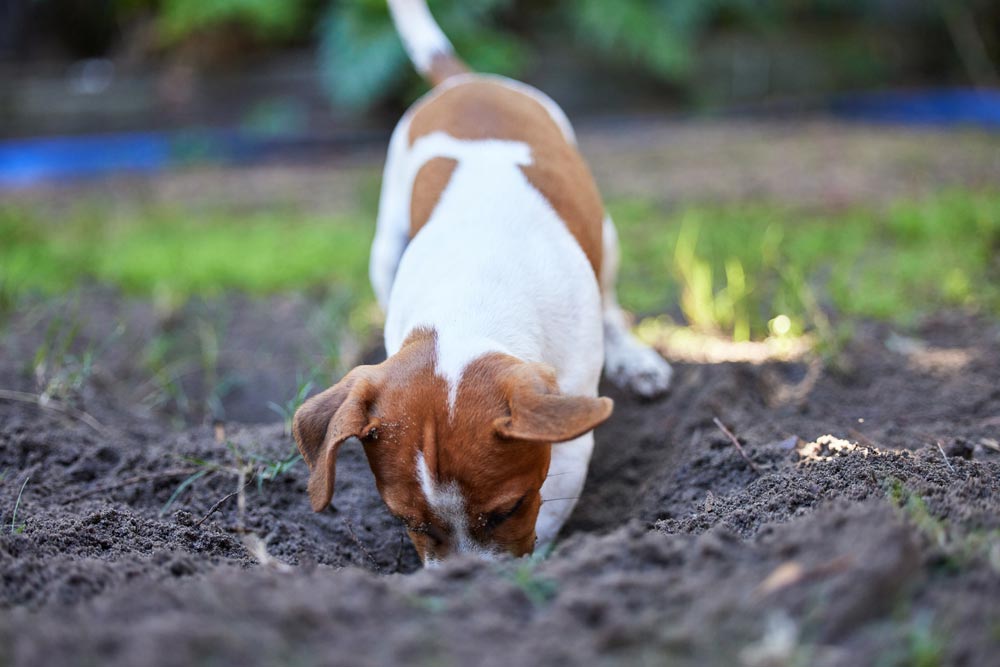
- Potty training accidents: Potty training is a process, and it’s common for puppies to have accidents during the training process. You’ll need to be patient and consistent in your training efforts.
- Chewing: Puppies love to chew and will often chew on anything they find and can get their teeth on, including furniture, shoes, and other household items.
- Scratching: Puppies love to scratch, and their claws can cause damage to flooring, furniture, and other household items.
- Shedding: Depending on the breed, your puppy may shed a lot of fur, which can be a mess to clean up.
- Drooling: Some breeds are known for drooling, which can create a mess in your home.
- Vomiting and diarrhea: Puppies can experience digestive upset, which can result in vomiting and diarrhea.
It’s essential to keep in mind that these messes and accidents are normal and can be managed with proper training, patience, and cleaning supplies. However, it’s best to be prepared for them and have a plan in place for how you will handle them.
5. Do you have the needed patience to deal with a puppy’s behavior problems?
Puppies are notorious for jumping, barking, and chewing on things they shouldn’t. Are you ready to put in the time and effort to correct these behavior issues?
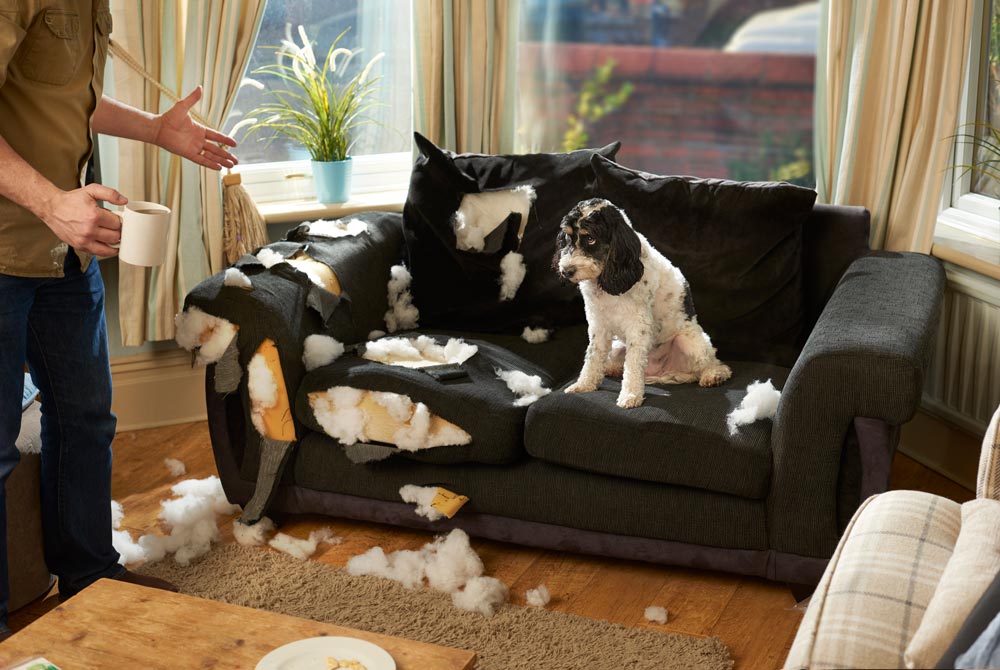
Here are some common behavior problems that you may encounter when owning a puppy:
- Barking: Puppies bark for many reasons, including boredom, fear, excitement, and territoriality.
- Chewing: As mentioned earlier, puppies love to chew, which can be frustrating when they chew on household items.
- Jumping: Puppies are naturally energetic and may jump up on people in their excitement.
- Digging: Puppies love to dig, which can be problematic if they dig up your yard or flower beds.
- Separation anxiety: Some puppies experience separation anxiety when their owners leave them alone. This can result in destructive behavior, barking, or whining.
- Aggression: In some cases, puppies may display aggressive behavior, such as growling, biting, or snarling.
These behavior problems can be managed with proper training, patience, and consistency. It’s important to understand that these behaviors are normal for puppies and that they can be corrected with proper training. However, it can take time, patience, and lots of persistence to help your puppy overcome their behavior problems.
6. Are you prepared to make changes to your home and lifestyle?
A puppy requires a safe and secure environment, and you may need to make changes to your home to accommodate your new furry friend. Here are some changes that you may need to make to your home and lifestyle when owning a puppy:
- Home preparation: You may need to puppy-proof your home by removing any items that your puppy can chew on and creating designated play areas.
- Lifestyle changes: Owning a puppy requires a lot of time, effort, and attention. You’ll need to be prepared to spend time training, playing, and caring for your puppy.
- Scheduling changes: Puppies need a regular routine, including meals, potty breaks, and playtime. You’ll need to adjust your schedule to accommodate your puppy’s needs.
- Outdoor activities: Puppies need regular exercise, and you’ll need to be prepared to take your puppy for walks and trips to the park.
- Budget changes: Owning a puppy can be expensive, and you’ll need to budget for food, toys, grooming supplies, veterinary care, and other expenses.
- Social changes: You may need to limit your social activities and avoid places where dogs are not welcome, such as restaurants and shopping malls.
It’s important to remember that these changes are necessary for the well-being of your puppy and to ensure that they are happy and healthy. While the changes may seem overwhelming at first, the reward of having a loyal, loving companion will be worth it in the end.
7. Do you have enough space for a puppy?
Dogs need room to play, run, and rest. Make sure you have enough room and space for a growing puppy. Having enough space for a puppy is an important consideration when bringing a new dog into your home. Puppies need space to play, exercise, and relax, and it’s essential to ensure that they have enough room to be comfortable.
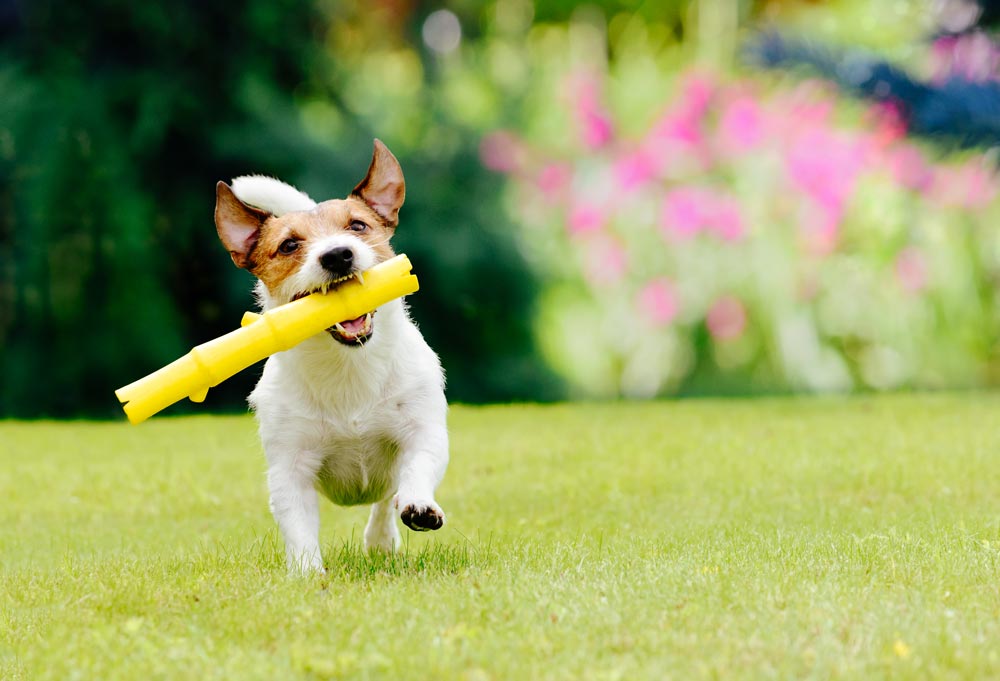
Here are some things to consider when assessing the amount of space you have for a puppy:
- Living arrangement: If you live in an apartment or a small house, you may want to consider a smaller breed of dog that will be better suited to a smaller living space.
- Outdoor space: Puppies need regular exercise and need a place to run and play. If you have a backyard, this can provide a great outdoor space for your puppy to play. If you live in an apartment, you’ll need to plan to take your puppy for regular walks to ensure that they get enough exercise.
- Indoor space: Puppies need a designated area to sleep and rest. A crate or a specific room in your home can be designated as your puppy’s sleeping area.
- Play area: Puppies need a designated area to play and explore. This can be an outdoor space, a room in your home, or a specific area in your living space.
8. Are you able to provide proper exercise for a puppy?
Puppies need plenty of good exercise to stay healthy and happy. Are you prepared to take your pup for walks, play with them, and provide them with other forms of physical activity? Proper exercise is essential for the health and well-being of a puppy. Puppies have a lot of energy and need regular physical activity to burn off that energy, maintain their physical health, and improve their mental health.
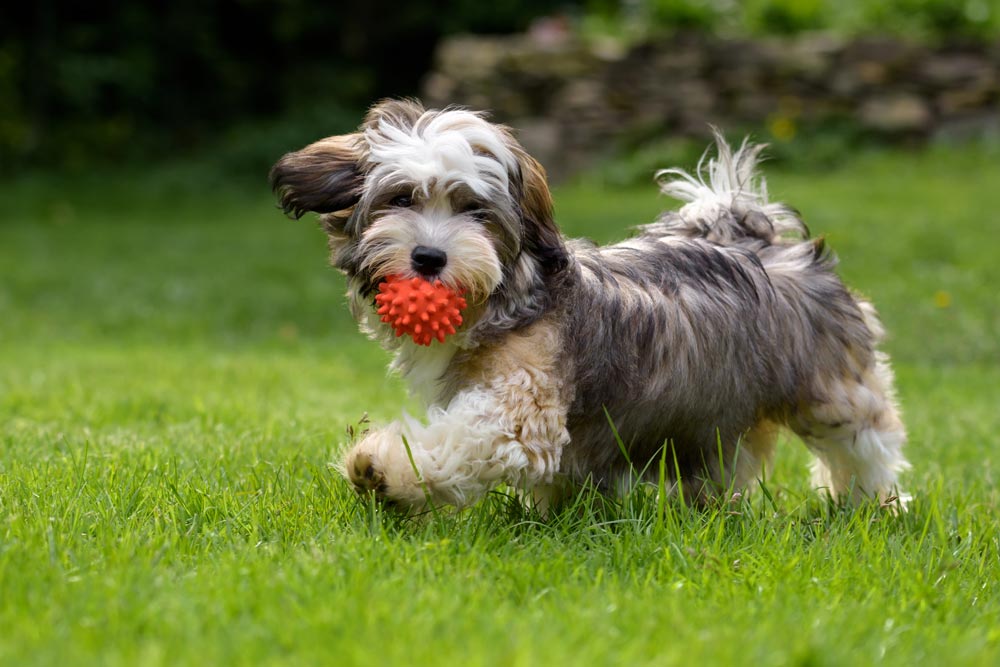
Here are some things to consider to provide proper exercise for a puppy:
- Daily walks: Puppies need daily walks to get the exercise they need and to experience different sights, sounds, and smells. This will help with their physical and mental development and provide an opportunity to bond with you.
- Playtime: Puppies need time to play and burn off energy. This can include playing with toys, playing fetch, or running around in a fenced-in area.
- Variety of activities: Different breeds of puppies have different exercise needs, and it’s important to provide a variety of activities that meet their physical and mental needs. Some dogs will enjoy long walks, while others may prefer playing in a pool or chasing a ball.
- Gradual increase in intensity: It’s important to gradually increase the intensity of your puppy’s exercise routine to prevent injury. Over-exercising a puppy can cause joint problems, so it’s important to start slow and build up gradually.
- Adequate rest: Along with regular exercise, puppies also need adequate rest. This means providing a quiet, comfortable place for them to sleep and relax.
9. Do you have the time to devote to a puppy?
Owning a puppy is a full-time commitment, and you need to make sure you always have the time to properly care for your new furry friend.
Devoting time to a puppy is one of the most important commitments you’ll make when bringing a new dog into your home. Puppies require a significant amount of time and attention to ensure that they are well-adjusted, happy, and healthy.
Here are some things to consider when assessing the amount of time you might have to devote to a puppy:
- Training: Puppies need to be trained and socialized to ensure that they become well-behaved and well-adjusted dogs. This requires a significant amount of time and effort, including regular training sessions and positive reinforcement techniques.
- Feeding and grooming: Puppies need to be fed regularly and require regular grooming to maintain their coat and skin health. This can take up to 30 minutes each day.
- Exercise: Puppies need regular exercise to burn off energy and maintain their physical health. This can include walks, playtime, and other physical activities.
- Supervision: Puppies need to be supervised at all times to ensure that they are safe and to prevent them from getting into mischief. This can take up a significant amount of time, especially in the first few months of your puppy’s life.
- Quality time: Spending quality time with your puppy is essential for building a strong bond and promoting their well-being. This can include playing with toys, cuddling, or training sessions.
Owning a puppy can certainly have an impact on your ability to be gone from home or travel. Puppies require a significant amount of time, attention, and care, and leaving them behind for an extended period of time can be difficult and stressful for both you and your furry friend.
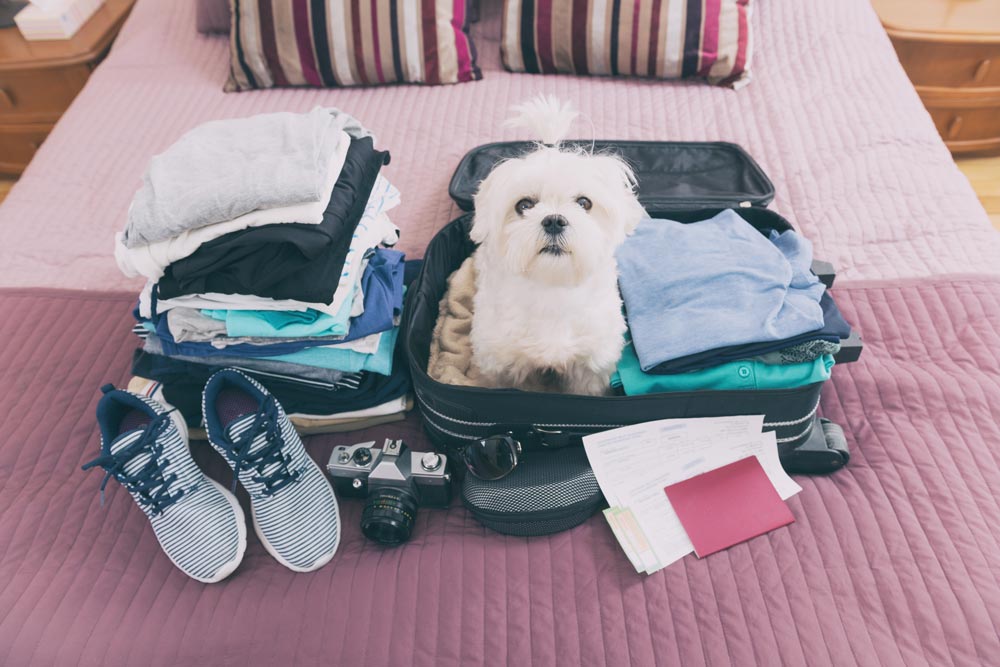
Here are some things to consider when assessing the impact of being gone from home or traveling with a puppy:
- Boarding: If you need to be gone from home and away from your puppy for an extended period of time, you may need to arrange for your puppy to be boarded. This can be expensive and stressful for your puppy, so it’s important to choose a reputable boarding facility and to plan ahead to ensure that your puppy is well taken care of.
- Traveling with a puppy: Traveling with a puppy can be a fun and good experience, but it also requires careful planning. You’ll need to make arrangements for your puppy’s food, water, and potty breaks and to ensure that they are safe and secure while on the road.
- Home alone time: If you work long hours or are frequently gone from home, you may need to arrange for someone to take care of your puppy while you are away. This can include hiring a pet sitter or asking a friend or family member to check in on your puppy during the day.
- Separation anxiety: Leaving your puppy alone for extended periods of time can cause separation anxiety, which can lead to destructive behaviors and other problems. It’s essential to provide plenty of mental stimulation, positive reinforcement, and affection to help your puppy feel comfortable and secure when you are gone.
It’s important to assess the impact of being away from home or traveling with a puppy and to make arrangements to ensure that your puppy is well taken care of while you are away. With the right planning and preparation, you and your puppy can enjoy all the benefits of your time together, no matter where you go.
10. Are you willing to commit to a long-term relationship with a puppy?
Dogs can live for 10-15 years or more, so you need to be prepared for a long-term commitment. Adopting and bringing a new puppy into your home is a long-term commitment that requires a lot of love, time, and effort. It’s important to be aware of the responsibilities that come with owning a puppy and to be prepared to make a commitment to a long-term relationship with your furry friend.
Here are some things to consider when assessing your willingness to commit to a long-term relationship with a puppy:
- Longevity: Puppies grow into adult dogs, and with proper care, many dogs can live for 10 to 15 years or more. It’s important to be prepared for the long-term commitment of caring for your puppy as they age.
- Health care: Regular vet visits, vaccinations, and other health care needs can add up over the years, and it’s important to be prepared for the financial commitment of providing proper health care for your puppy.
- Training and socialization: Puppies require regular training and socialization to become well-behaved and well-adjusted dogs. It’s important to be prepared for the amount of time and effort required to provide this training and socialization and to make a long-term commitment to your puppy’s well-being.
- Changes in lifestyle: Owning a puppy can result in changes to your lifestyle, such as limiting your ability to travel or requiring you to rearrange your schedule to accommodate your puppy’s needs. It’s important to be willing to make these changes to ensure the well-being of your puppy.
11. Do you have a support system in place?
Having a puppy is normally a lot of work, and it’s important to have friends and family who can help out when needed. Having a good puppy support system in place can be essential for the success of your puppy-owning experience. Raising a puppy is a big responsibility, and having a network of friends, family members, or fellow pet owners to turn to for advice and support can be incredibly helpful.

Here are some things to consider when assessing your support system for owning a puppy:
- A network of pet owners: Joining a local pet owner’s group or participating in online pet forums can sometimes be a great way to connect with other pet owners and to find support and advice.
- A pet-friendly community: Living in a pet-friendly community with nearby parks, trails, and dog-friendly businesses can make it easier to provide proper exercise and socialization for your puppy.
- Friends and family members: Friends and family members willing to help you care for your puppy or provide respite care when needed can be invaluable.
- A pet sitter or dog walker: Hiring a pet sitter or dog walker can provide peace of mind when you need to be gone for an extended period of time.
Having a support system in place can be essential for the success of your puppy-owning experience. It’s vital to assess your network of friends, family members, and fellow pet owners and to build a puppy support system that can provide you with the help and advice you need to raise a happy and healthy puppy. With a strong support system in place, you’ll be ready for a successful and enjoyable puppy-owning experience.
12. Are you prepared for the emotional commitment of having a puppy?
Having a puppy can bring a lot of joy and love into your life, but it can also be emotionally draining. Are you ready for the ups and downs that come with owning a puppy? Owning a puppy can be an incredibly rewarding experience, but it also requires an emotional commitment. Puppies are sensitive, loving, and affectionate animals that bring joy and happiness to your life. However, they also require patience, understanding, and dedication from their owners.
Here are some things to consider when assessing your emotional commitment to owning a puppy:
- Time and patience: Raising a puppy can be a long-term process that requires a significant investment of time and patience. It’s important to be prepared for the ups and downs of puppyhood and to have the patience and understanding needed to help your puppy grow into a well-adjusted adult dog.
- Emotional attachment: Puppies can quickly become a beloved member of your family, and it’s important to be prepared for the emotional attachment that comes with owning a puppy. Losing a family pet can be a devastating experience, and it’s important to be emotionally prepared for the eventual loss of your puppy.
- Empathy and understanding: Puppies are sensitive animals that thrive on affection and attention. It’s important to be emotionally attuned to your puppy’s needs and to be able to provide empathy and understanding in order to build a strong bond with your furry friend.
Owning a puppy requires an emotional commitment that goes beyond simply providing food, shelter, and basic care. It’s important to be prepared for the emotional ups and downs of puppyhood and to have the patience, understanding, and empathy needed to raise a happy and healthy puppy. With the right emotional commitment, you and your puppy will build a strong, loving bond that will last a lifetime.
13. Have you Researched and Chosen the right breed?
Choosing the right breed is an important step in the process of owning a puppy. Each breed has unique characteristics, temperaments, and physical attributes that can make them a good fit for certain lifestyles and living situations. Researching different breeds is easy here on Trustedpuppies.com.
Here are some things to consider when researching and choosing the right breed:
- Lifestyle and living situation: Consider your living situation, including the size of your home and yard, as well as your work schedule and daily routine. Some breeds are more energetic and need more exercise, while others are more low-key and are better suited to apartment living.
- Temperament: Different breeds have different temperaments, so choosing a breed that matches your personality and lifestyle is important. Some breeds are more energetic and playful, while others are more calm and docile.
- Activity level: Consider your preferred level of physical activity, and choose a breed that matches your energy level. Some breeds need more exercise and playtime, while others are content with shorter walks and play sessions.
- Grooming needs: Different breeds have different grooming needs, and it’s important to choose a breed that you are willing and able to groom regularly. Some breeds have long coats that need daily brushing, while others have short, low-maintenance coats.
- Health concerns: Research the breed’s health concerns and any genetic predispositions. Some breeds are prone to certain health problems, such as hip dysplasia or eye conditions, and it’s important to be aware of these issues before choosing a breed.
In conclusion, owning a puppy is a big responsibility that requires a lot of time, effort, and commitment. Before bringing a puppy into your home, it’s important to ask yourself these 13 questions to make sure you’re ready for the challenge. Remember, a well-cared-for puppy can bring a lot of joy and love into your life, so take your time to make a good decision.

